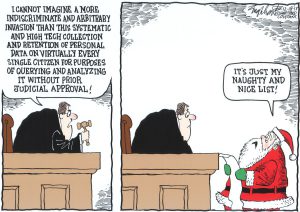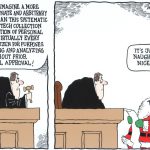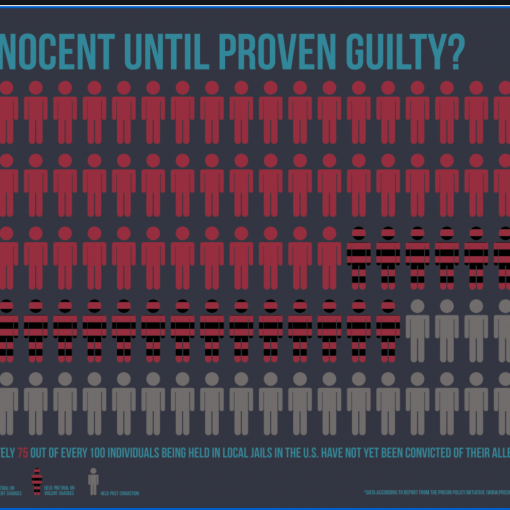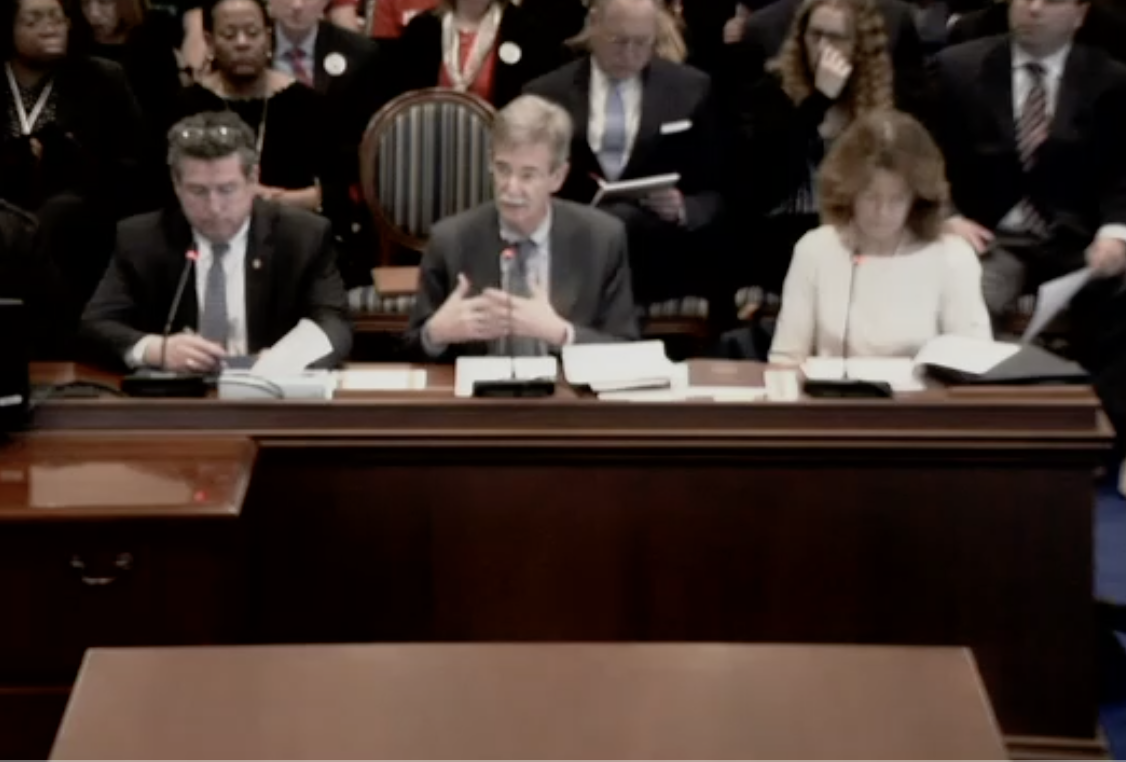By: Jillianne Trotter
Maryland could take a small but significant step towards systemic justice this legislative season by passing HB 271, which would require county clerks to record onto Case Search the name of the judge or magistrate who presides over a case. [1] Adopting a uniform process will aid in tracking and evaluating judicial decisions, and it is also recommended by the American Bar Association. [2]
Maryland’s public court record system, Case Search, almost always excludes the names of judges and magistrates while including the names of other legal actors to a case. [3] This practice thwarts judicial accountability by preventing the public from seeing patterns of bias in judicial decision-making. [4] The director of Court Watch PG keenly captures this problem best in stating “injustice happens in empty courtrooms” or, pertinent to HB 271, in incomplete court records. [5]
To circumvent this problem, grassroots organizations have developed other methods to track judicial data, such as Open Justice – a philanthropic organization that scrapes data from Case Search and puts it into a more accessible interface for the public. [6] However, since every county in Maryland differs in what information they input on Case Search, tracking the names of judges assigned to cases is mostly only possible through county-by-county Maryland Public Information Act (“MPIA”) requests or data scraping county court dockets. [7]
Another approach led by Court Watch PG involves “Court Watchers” attending bail and criminal hearings primarily to find out who the presiding judge is so they can record their name into their database to analyze and expose patterns of bias. [8] In the Covid-world where virtual hearings have overwhelmed county dockets, public video access to zoom hearings has not been allowed, which means Court Watchers can call in, but cannot see which judge presides over a given case.[9] To solve this, Court Watchers call the court clerk’s office every day to ask which judge is assigned to each of the cases they are tracking. [10] Once the judge’s name is obtained, it is then shared among Court Watch’s group chat. [11] With this information, Court Watchers report that they have learned to predict the outcome of cases based on which judge is assigned. [12]

Herein lies a major issue: the outcome of a case should never be dependent upon which judicial “straw” you pull that day in court. [13] After sitting through thousands of bail hearings, Court Watch PG director said that the decision to release or not release someone from jail was just as much about the judge’s perspective as it was about the crime. [14] The cost of getting an unchecked judge is too high. [15] While the Court of Special Appeals of Maryland found in 2021 that there was no justifiable basis to unilaterally shield judges’ names from the public record, their unreported opinion applies only to the litigants involved. [16]
This bill would allow organizations like Open Justice and Court Watch PG to shift their focus from collecting data to interpreting data for patterns of bias in judicial decisions. Passing HB 0271 requires minimal efforts by court clerks but would initiate the potential for legal reform in Maryland, including determining which judges are on the “nice list” and which are on the “naughty list.”
Update: Bill 271 did not pass.
Footnotes
[1] H.B. 0271, 2022 Leg., 444th Sess. (Md. 2022).
[2] Agenda for Change, Initiative Seven: Judicial Accountability and Transparency, Court Watch Montgomery (last visited Jan. 24, 2022), https://courtwatchmontgomery.org/agenda-for-change/#init7, (making matters worse, Maryland has some of the longest judicial terms in the nation).
[3] See Steve Lash, Judiciary Must Surrender Key to Judges Names in Case Search, Appeals Court Says, The Daily Record (July 2, 2021), https://thedailyrecord.com/2021/07/02/judiciary-must-surrender-key-to-judges-names-in-case-search-appeals-court-says/.
[4] See Katie Mettler, Once Jailed, These Women Now Hold Courts Accountable –With Help from Students, Retirees, and Fiona Apple, Wash. Post (Apr. 9, 2021, 6:00 a.m.), https://www.washingtonpost.com/local/public-safety/courtwatch-prince-georges/2021/04/08/dc63e064-2e96-11eb-bae0-50bb17126614_story.html.
[5] Id.
[6] See generally Open Justice Baltimore, https://openjusticebaltimore.org/#projects (last visited Feb. 6, 2022). Open Justice is a grassroots organization that tries to hold judges accountable through time-consuming methods such as PIA requests or data scraping court dockets county by county. See also Interview with Zach Zwagil and Dan Staples, Open Justice (Oct. 29, 2021).
[7] See Committee Testimony: Judiciary Committee on HB0271, held at 2022 Leg., 444th Session (Md., Feb. 2, 2022), https://mgaleg.maryland.gov/mgawebsite/Committees/Media/false?cmte=jud&ys
=2022RS&clip=JUD_2_2_2022_meeting_1&url=https%3A%2F%2Fmgahouse.maryland.gov%2Fmga%2Fplay%2Faef27329-4a75-450b-afd6-55824aed3f08%2F%3Fcatalog%2F03e481c7-8a42-4438-a7da-93ff74bdaa4c%26playfrom%3D3844005. See also Case Search, Maryland Judiciary Case Search: Frequently Asked Questions 2 (last visited Mar. 5, 2022), https://casesearch.courts.state.md.us/
casesearch/inquiry-faq.jsp (stating “[t]he amount of historical data may vary by jurisdiction based on when an automated case management system was deployed in that jurisdiction and how the system has evolved.”).
[8] Court Watch PG, “Our Goals” (last visited: Jan. 23, 2022), https://courtwatchpg.com/.
[9] See Mettler, supra, note 4.
[10] Id.
[11] Id.
[12] Id.
[13] See Shelley Orman, Maryland Judicial System Under Scrutiny Amid Rising Violence, Fox 45 News (July 31, 2021), https://foxbaltimore.com/news/local/maryland-judicial-system-under-scrutiny-amid-rising-violence.
[14] Id.
[15] See Kendall Green, ‘I will kill anybody that associates themselves with you’ Deadly threat turned promise, 2WMAR Baltimore (June 23, 2021, 3:45 AM), https://www.wmar2news.com/news/local-news/i-will-kill-anybody-that-associates-themselves-with-you-deadly-threat-turned-promise. A Howard County judge denied a protective order with multiple allegations of strangulation and the defendant murdered the plaintiff’s son, daughter in-law, and 10-year-old grandchild months later. Without judicial accountability in our court data system, judges can blanketly deny hearing cases without even leaving a discernible signature to know which judge made the decision. See also State of Maryland v. Tyrese McKinnon, Case. No. 0E00691026 (Md. 2020) on Gasping for Justice (last visited Mar. 5, 2022), https://www.gaspingforjustice.org/uploads/1/3/2/5/132507461/form_denial_for_bond_review_motions__2_.pdf (showing a motion to modify bond was blanketly denied without providing the defendant with a hearing. This denial doesn’t state individualized reasons why the motion was denied, and the signature provided by the judge who decided the matter was indiscernible).
[16] See Admin. Office of the Courts v. Abell Found., 252 Md. App. 261, 270 (2021). The Administrative Office of the Courts previously argued that judges’ names were excluded from being disclosed because they did not pertain to a “policy or directive governing courts’ operations.”
“This article was originally posted at by Law Forum https://ublawforum.wordpress.com, and is republished by permission of the author.”





